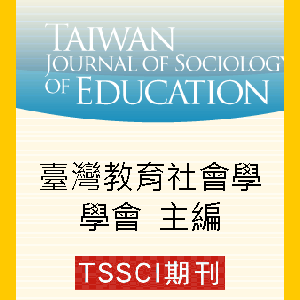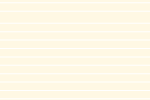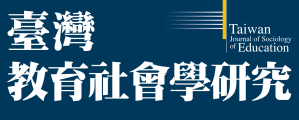| 篇名 | |
|---|---|
| 並列篇名 | The Verification of a Structural Equation Model on SES, Siblings, Household Education Resources and Educational Achievement: Using the Empirical Data of the 2001 TEPS |
| 作者 | 李敦仁、余民寧 |
| 中文摘要 | 根據家庭教育資源理論、匯流模式、資源稀釋模式和社經複製論,本研究提出一個影響教育成就取得的模式,以探討現今臺灣學子的教育成就取得的歷程及其相關因素。研究資料來源取自中央研究院2001年「臺灣教育長期追蹤資料庫(TEPS)」第一梯次國中一年級學生共13,434人為樣本,運用結構方程模式統計分析方法,對本研究所提的模式加以驗證。結果實證觀察資料支持修正後的教育成就取得模式,並且所提出的研究假設均獲得證實:(1)父母社經地位愈高,子女數愈少;(2)父母社經地位除了會直接影響子女教育成就外,亦會間接透過手足數目和家庭教育資源兩條路徑間接影響子女教育成就;(3)手足數目會稀釋家庭教育資源,與扮演家庭教育資源和教育成就之間的調節角色,並且匯流模式的影響效果大於資源稀釋模式。另外,本研究也針對研究結果和方法論提出建議,以作為未來進一步研究的參考。 |
| 英文摘要 | Based on the theories of household education resources, confluence model, dilution model and social economical reproduction theory, this study aims to propose an educational achievement model and to explore the processes and correlated factors that influence on the achievement of junior high school students in Taiwan. By using data from Taiwan Education Panel Survey(TEPS) collected by Academic Sinica in 2001, 13,434 students were selected as samples. Results show that the empirical data supports the modified theory model and hypotheses are all been confirmed: (1)The higher SES, the less the number of siblings. (2)Not only is significant direct effect of SES on the children educational achievement, but also the indirect effect through siblings and household education resources. (3)Siblings dilute household education resources and play a mediating role between household education resources and educational achievement. The influence effect of confluence model is stronger than that of dilution model. Therefore, this study proposes some useful suggestions to stakeholders and methods for the future research. |
| 起訖頁 | 1-47 |
| 關鍵詞 | 社經地位、手足數目、家庭教育資源、教育成就、SES、Siblings、Household education resources、Educational achievement |
| 刊名 | 臺灣教育社會學研究 |
| 期數 | 200512 (5:2期) |
| 出版單位 | 臺灣教育社會學學會 |
| 該期刊-下一篇 | 教師背景與初職位置:中學教師背景特質對取得各類型教職位置的影響 |








